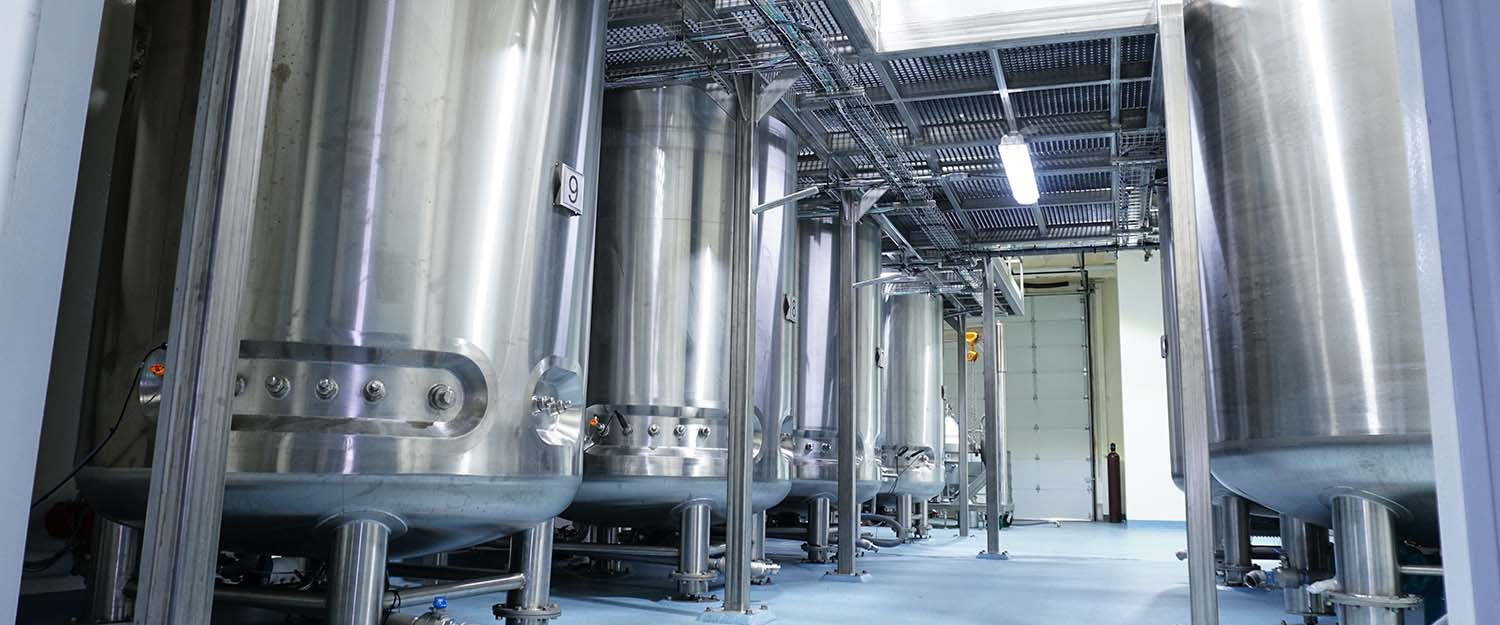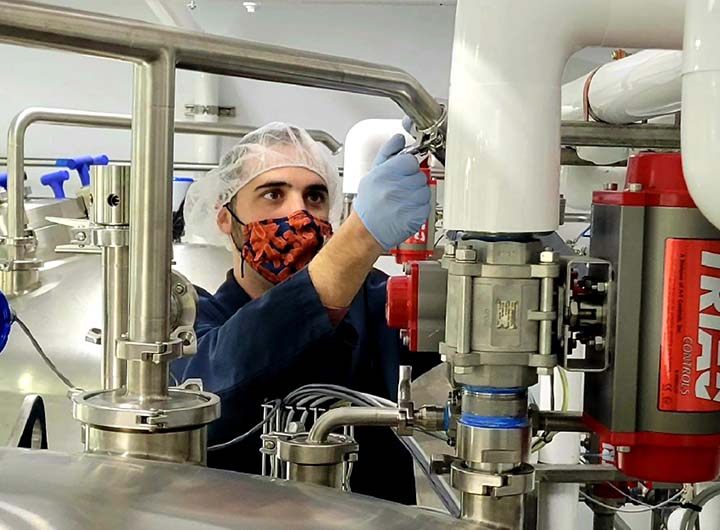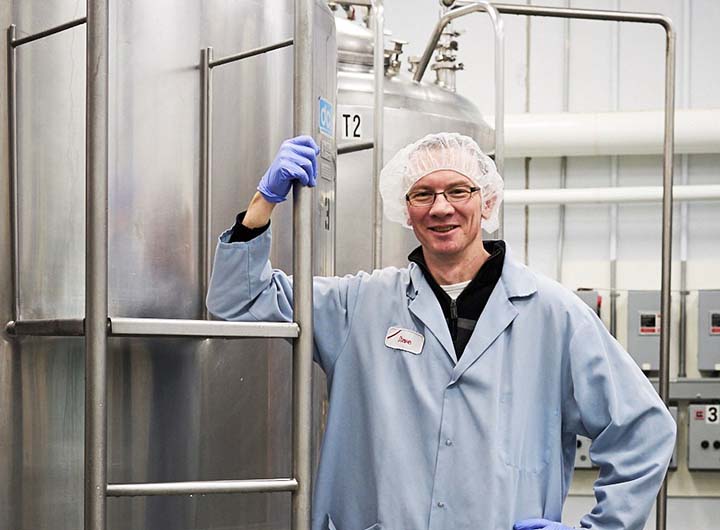

Over the last three years Probi’s fermentation facility has undergone major improvements with the goal of increasing probiotic production capacity and capability. This has reduced Probi’s dependency on external supply and addressed market demands for probiotic products that require advanced production technologies.
By combining strategic planning, project management, engineering, and process development a concerted team effort was executed on a series of phased facility expansions while maintaining continuity of supply to the customers.
It was a case of out with the old and in with the new technology with the goal of increasing the biomass, yields and probiotic counts. -- Josh Bailey, Manufacturing Process Engineer

As an extension of the continuous improvement culture at Probi, the team put effort into refining production, minimizing waste and reducing usage of resources. This, in line with the key tenets of efficient manufacturing, positively impacted the mission towards greater sustainability as well as lowering the costs of goods and overhead.
In the Seattle area, where Probi’s fermentation production plant is situated, the plentiful supply of water presents itself as a ready resource. Nevertheless, as water is a key element of probiotics production, its conservation is especially important to Probi.
With an enhanced focus on water reduction, its consumption was limited by around 60% based on the installation of a new ballasted multi-stage cooling system. Such an upgrade would show itself to be much more efficient than the old cooling systems employed previously. These modern cooling technologies allowed for the control of the probiotic fermentation temperatures with increased precision, which in turn improved production yields.
The new cooling system not only reduces the amount of water we use in our facility, it also allows us to take our product to a much cooler temperature. So, it is beneficial in both the impact upon the environment and the overall process itself. -- Steve Preston, Head of Fermentation Technology, Redmond

In addition to that, the monitoring of the operation of the equipment could be conducted in real time. System efficiency was subsequently maximized using cloud-based process monitoring systems, to track efficiency. Data sharing with the manufacturer for real time preventative maintenance and fault correction, was an extra bonus.
During the upgrade process substantial changes were made to the production flow, effectuating a reduction of energy losses. This was achieved by recycling steam energy within the production process.
“So, you return your hot condensate, and pump it back to the process. We have it in a huge network that all pump back to a single network, where we capture as much of the heat recovery that we can instead of putting it down the drain.” explains Josh.
Energy conservation, using heat exchange, also improved efficiency and extended the service life of critical boiler components. Maintaining process stability and avoiding large process fluctuations leads to waste minimizing and higher productivity as well as product quality.
As part of the electrical upgrades, 4 large Freeze Driers were removed and recycled. Being over 20 years old, these units were outdated and highly energy inefficient. In connection with the production facilities upgrade, the Freeze Driers were replaced with motors and controls powered by higher voltages and variable frequency drives (VFDs). Such VFDs not only ensure higher efficiency but even extended service life as well as better production consistency.
A project to utilize all products and by-products made during the probiotic fermentation process was recently initiated. The concept was to minimize superfluous material by recycling and gently processing products that contain efficacious actives but are too dilute for normal probiotic products.
“This is showing great promise and can potentially generate additional revenue.” Steve concludes.
Over the last year, considerable progress with this project has been made. The following commercialization of these creatively recycled products is anticipated to take place sometime in 2022. As such these, and other ways, are employed to reduce, recycle and minimize waste throughout the facility – whether through recycling, lean initiatives, circular economy or technological innovation, sustainability is of great importance.
Learn more about our expertise and our manufacturing capabilities here.

Sustainability can also be about taking care of yourself during a pandemic while at the same time maintaining productivity and...

At Probi we believe in achieving things in partnerships. Probi has therefore launched the #togetherfor17, to honor our commitment...

Probi has identified 3 of the 17 UN Sustainability Developmental Goals (SDGs) as aligned with the company’s business model and...